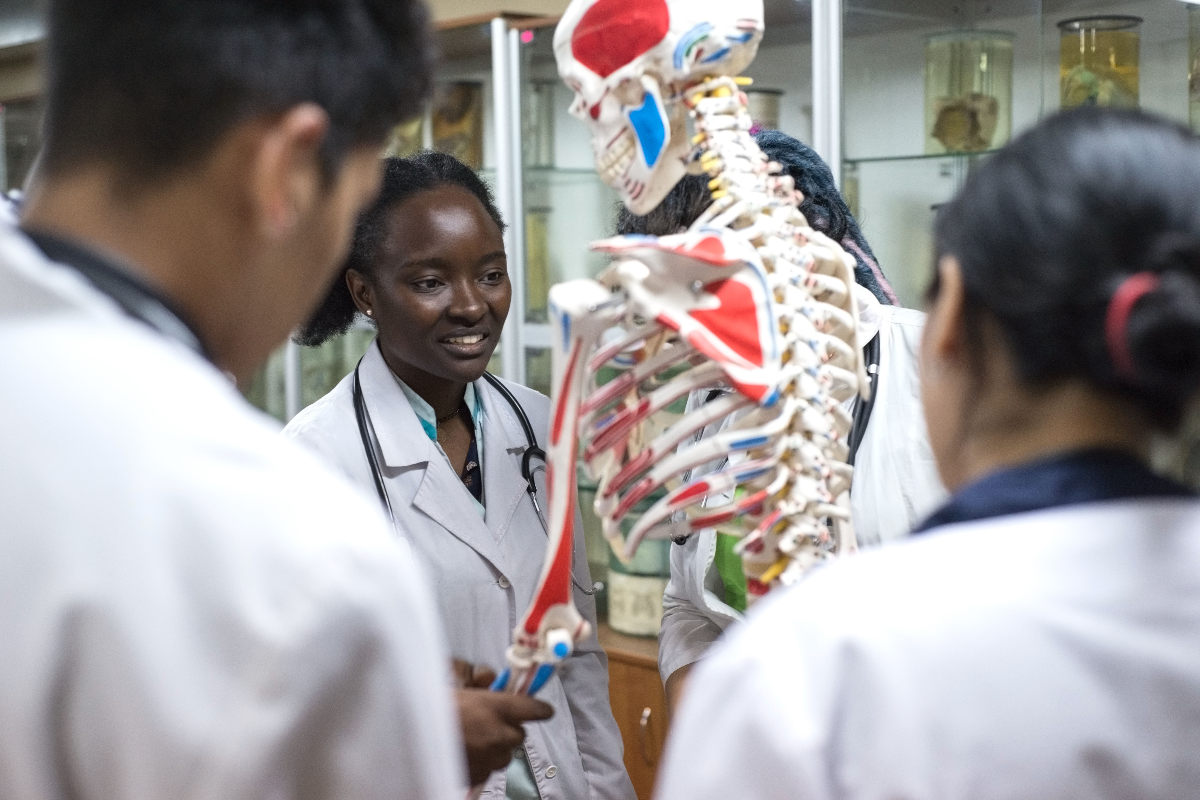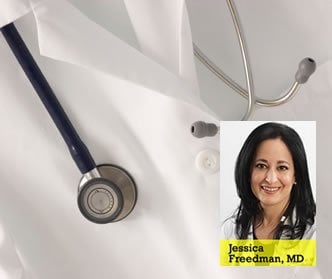Dr. Andrew Read-Fuller is a dentist and resident with the Division of Oral and Maxillofacial Surgery at Parkland Memorial Hospital/UT Southwestern Medical Center, with a focus on the broad scope of oral and maxillofacial surgery, including dentoalveolar, orthognathic, cleft and craniofacial, and cosmetic surgery, as well as facial trauma and head and neck cancer. Read-Fuller received his bachelor’s degree in politics from Princeton University (2005), and, most recently, he is a graduate of the UCLA School of Dentistry, where he received his doctor of dental surgery (DDS) magna cum laude (2011) and his master’s degree in oral biology (2011). He is currently active in the Resident Organization of the American Association of Oral Maxillofacial Surgeons.
Dr. Read-Fuller was active with the American Student Dental Association during his time at UCLA, serving as vice president, executive committee member and president of the UCLA chapter. He has earned numerous honors and awards, including the Dr. William S. Kramer Award of Excellence –Omicron Kappa Upsilon (2010), Pierre Fauchard Academy Scholarship (2010), California Dental Association Foundation Scholarship (2010), Webb Family Scholarship –Outstanding Leadership (2009 – 2011), UCLA Affiliates Academic & Leadership Scholarship (2008 – 2010), and ADA Foundation Academic Scholarship (2008).
Residency
If I Had a Million Dollars (But I Don’t)
Someday, after years of school (then more school) and residency training, we will start earning doctors’ salaries. In the meantime, finances can be tight, but there are ways to cut costs, optimize the money you do have, and maybe even bring in a little extra on the side.
There’s an old moniker you can’t change what you don’t acknowledge. It’s hard to make a budget if you don’t know what you’re spending currently. Take a few weeks and keep track, ideally a full month. Write down everything, regardless of how you pay for it – cash, check, credit card, bitcoin. . . Even if you have a 0% interest credit card and won’t be paying it off for a while, write it down. Then, consider your monthly income. If you’re ending the month in the black – congratulations! You’re on the right track. You may still want to decrease your expenses to reduce your overall loan burden. If you find your monthly cost of living exceeding your income, it is definitely worth your while to take a hard look at what you’re spending and how to cut back.
Navigating Your Future: A Roadmap to Specialty Exploration
Congratulations! You’re in medical school. What you will soon realize is that your answer to “What do you want to be when you grow up?” is going to have to change. Simply saying “doctor” is no longer enough. You need to start to figure out what kind of doctor you want to be. And, although applying to residency may feel very far off, there are steps you can do starting in your first year to help you pick the specialty that best suits you.
Most of us have fairly limited exposure to different specialties as pre-meds; mine consisted primarily of shadowing cardiothoracic surgeons. Yet there is a huge diversity among medical specialties, some of which you may have never heard about. Physiatry, anyone? Others you know of can be quite different than what you had envisioned. A friend of mine recently shadowed an interventional radiologist and was surprised by the surgical nature of the specialty.
Getting Into Medical School and Residency: Wish I Knew It Before I Blew It
Drawing on the wisdom of those who have gone before you can help you avoid career-hindering mistakes.
Searching for Your Dumbledore: Finding a Mentor
Where would Harry be without Dumbledore? We all need mentors, and they can be critical throughout your career development. Whether you are an undergraduate thinking about applying to graduate or professional school, a medical student wading through residency options or a post-doc looking for faculty positions, the relationships you develop with your mentors can be invaluable. Mentors can give advice, provide encouragement or a reality check, offer insight from their experience, and expand your network by connecting you with their own friends and colleagues. The ideal mentoring relationship is one that evolves over time where the mentor takes a genuine interest in the success of the mentee. We all recognize that mentors are important. But how do you find them? And, once you have, how do you nurture the relationship so it can thrive?
20 Questions: Brian Walcott, MD, Neurosurgery
Brian Walcott shares his thoughts on neurosurgery and research and offers some advice for students.
Emergency Medicine: Can a Sizzling Hot Specialty Burn You to a Crisp?
Studying Medicine in Europe
The number of North American students attending European medical schools is increasing, but studying medicine in Europe is not without its challenges.
The Big Question: What Specialty Should I Choose?
It is Match Week and Jennie, a third year medical student, is starting to panic. She has talked to many of the fourth years as they chose where to apply for residency, went on interviews and decided how to rank the programs. They all seemed to be so sure of their specialties.
Jennie, however, is not at all sure. Pediatrics, psychiatry, and family medicine all seem intriguing. But, how to make a decision? She is worried that she won’t select the specialty that will be satisfying for her.
20 Questions: Christopher K. Thiagarajah, MD
Dr. Christopher K. Thiagarajah shares his perspective on the field of oculoplastics and advice for students.
20 Questions: Sandeep Jauhar, MD

Sandeep Jauhar, MD, director of the Heart Failure Program at Long Island Medical Center, is author of Intern: A Doctor’s Initiation. Dr. Jauhar’s route to medicine was not entirely direct, as he earned a bachelor’s degree (‘89), master’s degree (‘91) and PhD (‘95) in physics from the University of California, Berkeley, before graduating from Washington University School of Medicine (‘98).
20 Questions: Richard A. Sheff, MD, Author, Family Medicine
Richard A. Sheff, author of Doctor Confidential: Secrets Behind the Veil, is a Rhode Island family physician with over 30 years of experience in medicine. Dr. Sheff received his MD from the University of Pennsylvania School of Medicine before serving his residency with Brown University Division of Family Medicine at The Memorial Hospital in Pawtucket, Rhode Island.
After practicing family medicine in Massachusetts for 12 years and teaching at Tufts University School of Medicine in Boston for a decade, Dr. Sheff launched a company, CommonWell, with the goal of helping the healthcare system integrate the best of complementary and alternative medicine with the best of conventional medicine. He also began consulting with hospitals and physician organizations in the U.S. and internationally.
The Successful Match: Getting into Pediatrics
We recently discussed the pediatric residency selection process with Dr. Su-Ting Li, program director of the University of California Davis pediatrics residency program and Vice Chair of Education in the Department of Pediatrics. After graduating from the UCLA School of Medicine, she completed her pediatrics residency at the University of Washington. Following this, she remained at UW as a National Service Research Award Fellow in General Academic Pediatrics and pursued a MPH in epidemiology. She then joined the Department of Pediatrics at the University of California Davis where she has also held the title of Clerkship Director.
Dr. Li has been heavily involved in medical student and resident education on local, regional, and national levels. She has also been recognized for her research contributions. In 2008, her paper “Primary Operative Management for Pediatric Empyema” was recognized as one of the “Top 10 Articles in Pediatric Hospital Medicine.” She has been highly sought after as a journal reviewer, and is currently a reviewer for 12 prestigious publications, including Academic Medicine and Pediatrics.
All About Competency: Part 2
Part 2: Identifying and Evaluating Your Strengths and Weaknesses
What is your biggest weakness? What is your greatest strength?
Ever been stumped by these questions on an interview? Who hasn’t? I assure you the range of answers given to these questions should be a subcategory in the LOLcats website. I’ve heard way too many “I focus a lot on my studies” as answers to both questions. Nevertheless, most companies and professional school admissions committees cite these questions (or similar variations) among their many sample interview questions.
Some of my advice on this topic can be found on the Kaplan Medical School Insider webinar [free pre-registration required], using the analogy that an applicant’s biggest weakness was (noting the pun) being overweight. While that particular example is quite valid, this article focuses on helping you identify a weakness that answers this question honestly.
Getting into Residency: Most Important Factors
How do residency program directors decide whom to interview? And what factors influence how they rank those applicants they do interview? The National Residency Matching Program (NRMP) surveyed residency program directors in 2008 and 2010 about what they consider most important when deciding which applicants to interview and what criteria are most valuable when ranking residency applicants. This survey, an underutilized resource, provides valuable insight and information that can help medical students determine how competitive they are for a given specialty. The data can also empower applicants if they use the information to improve their candidacies.
Here is what the survey showed about 1) what factors influence program directors to offer a residency applicant an interview, presented as the percentage of program directors who considered each factor important, and 2) what specific criteria influence their decision to rank a residency applicant after the interview, using a scale from 1 (not at all important) to 5 (very important).
All About Competency: Part 1
Think that great grades = great doctor? In the 21st century, success will require you build competencies that you can apply to evolving technology. Part one of a six part series.
Caribbean Medical Schools: What to Consider
Dr. Jessica Freedman discusses challenges Caribbean medical students face in obtaining rotation and residency positions.
Using "SOAP" to Clean Up the Scramble
The Scramble will undergo significant changes in 2012. Michelle Finkel, MD, details these changes and how matched and unmatched candidates will be affected.
The Successful Match: Getting into Radiology
Of the 4,455 total residents training in 188 ACGME-accredited radiology residency programs, 88.3% are graduates of U.S. allopathic medical schools, 7.6% are international medical graduates, and 3.9% are osteopathic graduates.1 Dr. Vicki Marx is the director of the radiology program at the University of Southern California Keck School of Medicine, and we asked for her insights into the radiology residency selection process.
The Successful Match: Getting Into Emergency Medicine
There are 4,479 total residents training in approximately 150 ACGME-accredited emergency medicine residency training programs. Of these, 85.1% are graduates of U.S. allopathic medical schools, 9.0% are osteopathic graduates, and 5.7% are international medical graduates.1 Osteopathic students may also enter an AOA-approved emergency medicine residency program. In recent years, there have been over 40 such programs.2 Based on recent match statistics, emergency medicine can be considered to be a moderately competitive specialty.
We recently discussed the emergency medicine residency selection process with Dr. Jamie Collings, the Executive Director of Innovative Education and an associate professor in the Department of Emergency Medicine at the Feinberg School of Medicine at Northwestern University. For many years, she served as the program director of the emergency medicine residency program at Northwestern. Over the past fifteen years, she has been heavily involved in advising students interested in pursuing a career in emergency medicine. Dr. Collings earned her medical degree at the Oregon Health & Science University, and then completed her residency at the University of Chicago.











